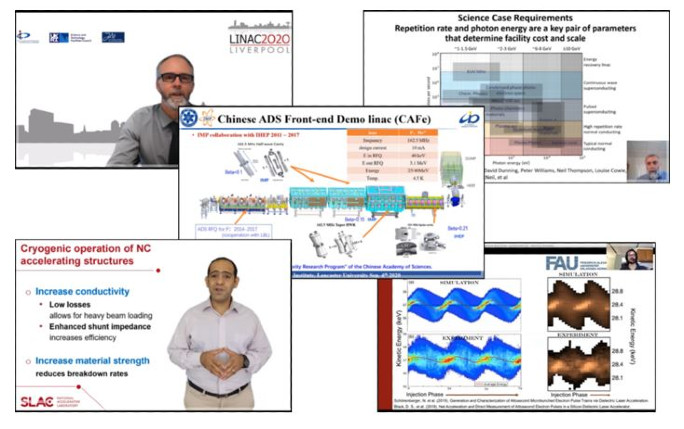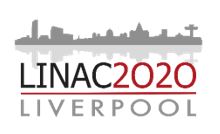Virtual International Linac2020 Conference

In the context of the current global Covid-19 pandemic, interfacing, interactions and collaborations are most certainly being challenged in terms of groups finding ways to maintain ongoing and effective engagements. Organisers for Conferences, Workshops and large meetings are having to look at alternative ways for ensuring appropriate communication and dissemination of topical information, such that associated discussion and debates can be optimally facilitated without having the opportunity to interact directly in person.
The International Linear Accelerator Conference (Linac2020), which is hosted bi-annually and typically attracts >400 linear accelerator specialists from all around the world, was originally scheduled to take place at the Liverpool Arena and Convention Centre (ACC) in the UK during the week of August 31st. As the global travel and interaction restrictions of the pandemic were escalating, it became clear to the UK conference hosting organisations comprising STFC Daresbury Laboratory, Cockcroft and John Adams Accelerator Institutes, that alternative solutions for the delivery of the Linac2020 conference had to be sought.
Linac2020 conference chair, Prof Peter McIntosh from ASTeC and the Cockcroft Institute (CI), said: “Engagement with the Linac International Organising Committee concluded that delaying the original event by 2-years to 2022 was the best solution. At the same time, the IOC decided that the original Linac2020 scientific programme should be appropriately captured and disseminated in a smaller, virtual conference that could present the considerable linear accelerator R&D which has been undertaken since the last Linac2018 conference in Beijing.”
Prof Graeme Burt from Lancaster University and the CI, who chaired the Linac2020 Scientific Programme Committee, added: “We agreed a suitable approach for a single, globally-focussed virtual transmission. Working with the STFC Media Services team at Daresbury Laboratory, an effective Zoom-based webinar approach was adapted, all speakers kindly agreed to pre-record their talks, as well as being available for a live interaction with participants through an associated Q&A session. The decision to use this hybrid approach was critical to the success of Linac2020, to give talks free from issues whilst also having a live feel.”
Over the period, 1 – 4 September, the Virtual Linac2020 was hosted and interfaced with the international accelerator community as a non-physical linac conference, for the very first time in its almost 60-year history. Prof Carsten P Welsch, Head of the Liverpool physics department and chair of the Local Organizing Committee, added: ”Astonishingly, the virtual event attracted 710 live international participants from all around the world and almost 800 registered to access the offline videos. The timing of the afternoon sessions was tailored to ensure that speakers from all regions could be appropriately available for their scheduled talks at a reasonable time with respect to their location.”
A completely new element in the scientific programme was a Women In Science and Engineering session focussed on retention and advancement. This was conducted live comprising a number of distinguished panellists, who reviewed the challenges that they faced in being attracted to science and engineering, maintaining motivation to stay within the field and providing insightful and thought provoking personal career experiences, as well as answering questions from the online audience.
All talks will remain accessible via the Linac2020 website for registered participants. The UK partners are now looking forward to hosting the International Linear Accelerator Conference 2022 in Liverpool. More information will be made available via the event homepage in due time.
